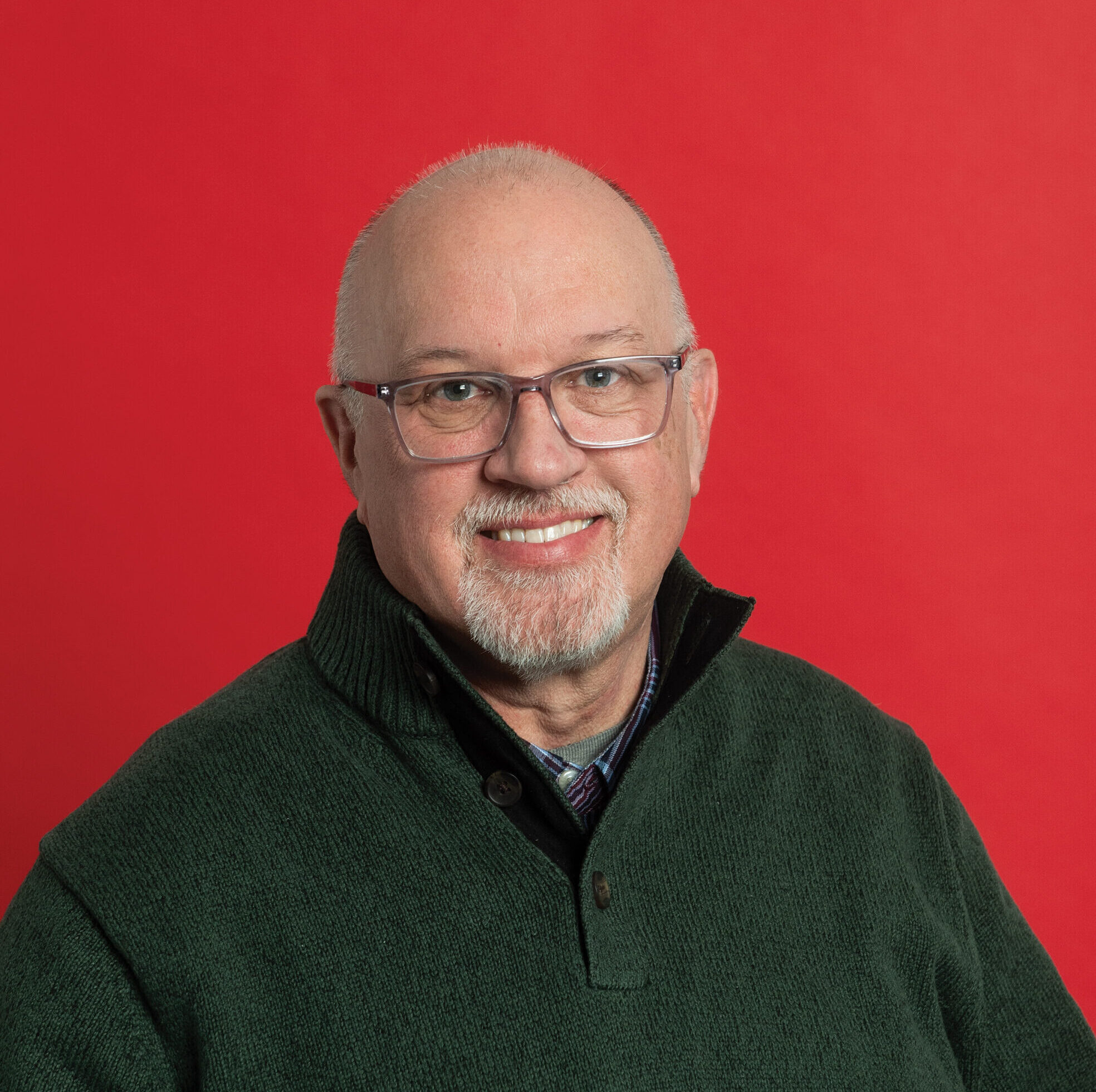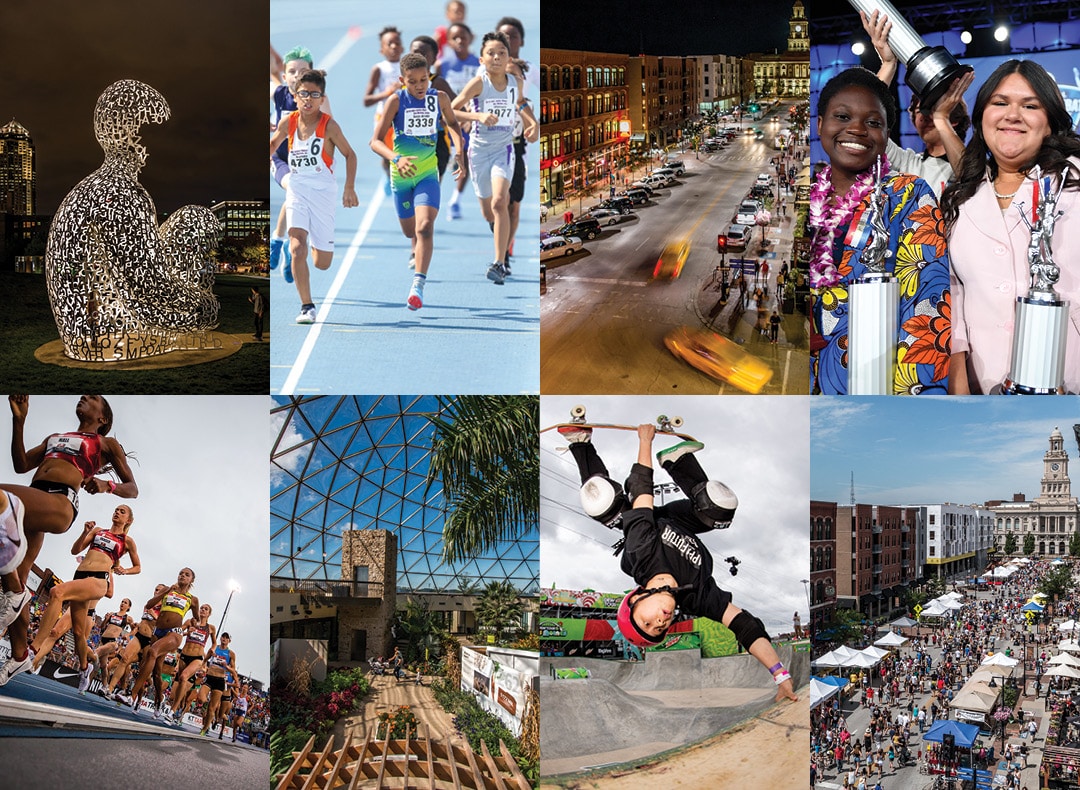Tourism industry working to balance DEI challenges while selling Des Moines as welcoming destination

Michael Crumb Apr 26, 2024 | 6:00 am
8 min read time
1,872 wordsArts and Culture, Business Record Insider, Diversity, Equity and Inclusion, Economic DevelopmentThe evolution of what it means to be diverse and inclusive has caused convention and visitor bureaus across the country to refocus the ways they are supporting groups while working to attract events and visitors and their dollars to their communities.
That can be challenging as state governments debate legislation that, at times, is in direct conflict with the values and ideals of some organizations.

“There is a portion of groups that it doesn’t matter,” said Trina Flack, vice president of sales for Catch Des Moines. “There are so many states that now have legislation that could be prohibitive to [groups] wanting to meet in that state that it’s pretty limiting. But there are also groups that absolutely will not meet here because of our legislation or our policies.”
But concern over DEI issues or policies enacted by state legislatures is only one factor that staff at Catch Des Moines and its peers across the country have to contend with, she said.
According to Flack, some groups raise concerns with the layout of convention space or available hotel packages, among other issues.
“There are a million reasons why a group could say yes or no, and [DEI policies] is just one of them,” she said.
Flack said Catch Des Moines has “gotten better about speaking to those [DEI] issues specific to our community.’
“We have the ability to speak to the message that says, ‘Yeah, we are a state that may not agree or may not have legislation your values agree with, but you also have a membership in this state, so don’t you have a responsibility to support your members regardless of what state they’re in?’” she said. “I think we’ve done a better job as an industry of working through some of those challenging issues.”
When it comes to the challenges that Catch Des Moines faces, Flack said DEI issues are on an “even playing field” with other considerations.
“Do we have the capacity to host a group? Are we destination enough to host that group? Do we have the right airport lift to host that group? And are we safe and inclusive and welcoming to that group?” she said.
Flack said Catch Des Moines also partners with other local groups and businesses in the effort to persuade groups to choose Des Moines and central Iowa for their event.
“We’ve really had to put a priority on what resources exist,” she said. “What businesses do we need or individuals do we need to lean into and get a better feel from, and part of that is just understanding our community a little bit better.”
That can help staff learn what other events or activities are happening during a particular week or weekend that could be in conflict with a group’s values.
“It really circles back to how do we best support our groups and how do we speak to it?” Flack said. “How are we hosting a site event for [a group] and saying that ‘while our state legislation is in conflict with how you support your members, you should still meet here because we’re not the only state having this conversation or concern, and we need to figure out how to work through it.’ It’s knowing that we have to educate our staff. We have to educate our community, and we have to have some hard, in-depth conversations with our groups before hosting and while we’re in the sales process.”
Flack said Catch Des Moines communicates with peer organizations across the United States. on what is being done to overcome DEI challenges, as well as meeting with organizations’ planners to learn more about their needs.
Catch Des Moines also works to direct groups to hotels, businesses and restaurants they know are aligned with a group’s values, she said.
“We sit down as a community with a planner and ask what’s important,” Flack said. “If gender-neutral restrooms are important, here are your resources, and we’ve just created a list in the community because we know it’s important to a group.”
Catch Des Moines has also worked with groups to identify accessible entrances to the downtown skywalk because in some cases skywalk entrances didn’t work for people who use a wheelchair.
“So if we know that piece of information, we can do the research on the front end to ensure our guests have the best possible experience,” Flack said.
Efforts by convention and visitor organizations like Catch Des Moines to build resources for potential guests are always evolving. One example is a hotel that complies with American with Disabilities Act rules but whose beds were too high.
“We didn’t know that,” she said. “The rooms were accessible, they were meeting all the normal standards, but it didn’t work. Now we have a whole different list of resources. Just because you’re ADA doesn’t mean you can accommodate everybody. Now we can go to a group and say, ‘You can meet here, but here are the limitations. Some of the things you can change and some you can’t, but at least you can be upfront and honest about it.”

Greg Edwards, president and CEO of Catch Des Moines, said the work being done to address DEI challenges is just an extension of what the industry has always focused on.
“That’s what we’ve done for years,” he said. “We don’t care what religion you are, what race you are, what your politics are. We want visitors coming in.”
Edwards said he believes what’s happening at the Statehouse has become less concerning to some groups in recent years.
The NCAA canceled all its sports tournament games in North Carolina in 2016 after a controversial transgender bathroom bill was approved by state lawmakers. The North Carolina Legislature passed an amended version of the bill the following year, repealing a provision that required transgender people to use public restrooms that correspond to the gender on their birth certificate. The NCAA later lifted its ban on games in North Carolina, according to reports from The Associated Press.
Edwards said many groups understand the political volatility of such issues and how the political climate can change from year to year. Often, groups commit to bring their event to a city years in advance.
“It can change next session or after the next election,” he said.
In all, more than 40 bills have been introduced over the past two Iowa legislative sessions that target the rights of Iowa’s LGBTQ community. The only one that passed and was signed into law, according to the advocacy group One Iowa, was Senate File 2095 which allows for religious exemptions, allowing groups to decide which laws they will follow based on their religious beliefs.
Gov. Kim Reynolds signed the legislation on April 2. According to the One Iowa website, all the others failed to make it through the funnel deadlines and did not advance this year.
According to data provided by Catch Des Moines, 250 conventions and events have occurred because of its efforts during the current fiscal year, which ends June 30. Those conventions and events have generated $104.4 million for the region.
Groups that Des Moines does well with are students, religious and sporting groups and education associations. Officials said that’s because the city is affordable and is an easy driving distance or flight when compared with other locations.
Medical associations or government organizations, some of which may have written policies outlining where they can and can’t meet, are more difficult to attract. And depending on the denomination, some religious groups may also be difficult to attract, Flack said.
Who’s saying ‘no’
One group that turned Des Moines down because of politics is NACADA: The Global Community for Academic Advising, which chose Madison, Wis., over Des Moines.
Kyle Ross, the group’s executive director, said while several factors can play into the group’s decision on where to hold events, ensuring the safety of attendees is a priority.
“If we’re going to a city that could be a risk for any of our attendees as far as feeling like they’re going to experience overt experiences of discrimination, then we’ll likely not be looking at those sites in the future,” he said. “What we’ve been seeing is that, overall, cities and convention bureaus are very committed to still providing as safe an experience as possible for all attendees. Even if there are certain policies in place, what can they do within those policies to ensure folks feel like they can access the event to the fullest extent possible and where they feel as safe as possible?”
Ross said his organization has security on site and has policies to make sure gender-inclusive restrooms are available.
“When there’s certain things that cannot happen, then we’ll start looking at, ‘Well, maybe this isn’t the place to have a conference,’” he said.
The Manhattan-Kan.-based NACADA, which partners with Kansas State University, holds more than a dozen events a year, including a national conference that can attract up to 4,000 people, and regional conferences that can draw as many as 250 members, Ross said.
He said that while some states may not be viewed as welcoming or inclusive, sometimes cities within that state do meet those requirements. NACADA held a conference in Orlando, Fla., that Ross said members felt was very inclusive despite legislative policies being debated at the Capitol in Tallahassee.
But legislative policies are just one factor in his group’s decision-making process. He said things such as hotel room rates, and space requirements also are major factors that are considered.
Ross joined the group as executive director in August 2023, after the event was held in Madison, so he did not know the specific reasons Madison was selected over Des Moines.
Like Edwards, Ross said the political landscape in a state is fluid and difficult to predict.
“We know right now that there’s 26 states with DEI legislation on the floor. But we’re not sure where that’s going to go,” he said. “And then three years from now that may look completely different. So it’s hard to be able to predict those things and know where trends are going to go in the future in certain states or cities.”
Other groups contacted about their decision-making process did not respond to requests for comment, or declined to comment.
The Business Record’s requests for comment from other convention and tourism organizations in the Midwest, including those in St. Paul, Minn., Madison, Wis., Omaha, Neb., and Kansas City, Mo., went unanswered.
Flack said addressing DEI and the various types of diversity can present an “interesting dynamic” because “we can’t change who we are in terms of a population base.”
“We’re going to be 90% white no matter what, no matter what people want to see or hear,” she said. “But we can welcome anybody that doesn’t look or move like us. It’s just how do we do that, and how do we educate the general public and our visitors on the importance of inclusivity and diversity? That is something we’re still learning and we as a community are still learning. Helping someone understand that diversity also means having a conversation with somebody that doesn’t agree with you. From a tourism standpoint, we’re still scratching the surface of it.”

Michael Crumb
Michael Crumb is a senior staff writer at Business Record. He covers real estate and development and transportation.











